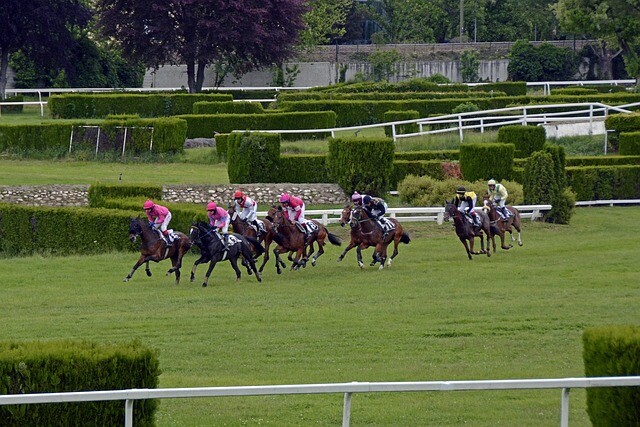What’s an accumulator?
 In horse racing, an accumulator is a collective bet on selections in successive races, usually four or more. If the first selection wins, the initial stake and winnings are carried forward to the second selection and so on, such that potential winnings ‘accumulate’ progressively until the end of the bet is reached. For example, if you place a 1-point accumulator on four selections, each at 1/1, or even money, your potential winnings will be 2 x 2 x 2 x 2 = 16 points.
In horse racing, an accumulator is a collective bet on selections in successive races, usually four or more. If the first selection wins, the initial stake and winnings are carried forward to the second selection and so on, such that potential winnings ‘accumulate’ progressively until the end of the bet is reached. For example, if you place a 1-point accumulator on four selections, each at 1/1, or even money, your potential winnings will be 2 x 2 x 2 x 2 = 16 points.
By it’s very nature acca bets are not easy to pull off, and so they can either be seen as a punt of a ‘lottery style’ punt, or alternatively some do their research or even go the horse racing AI route of analysing data and making comparisons in order to draw the most strategic and fact based conclusions possible.
An accumulator is an ‘all or nothing’ bet, so if one of your selections loses, you will lose your stake, regardless of the outcome of the other three races. Consequently, unless you’re in search of a huge return for a relatively small outlay, an accumulator is best suited to horses at prohibitively short odds, which are uneconomical to back individually. Of course, it’s possible to place an ‘accumulator’ on two or three successive races but, in horse racing parlance, the former is usually referred to as a ‘double’ and the latter as a ‘treble’.
Horse racing of course isn’t the only sport where accumulator bets loom large. Football is well known to have gifted punters many a big bucks acca win over the years. Some of course go for win bet combos, others over/under and the like, and the very same ai football tips angle is now an option, in the raced paces world of form and bet analysis. Don’t get left behind.